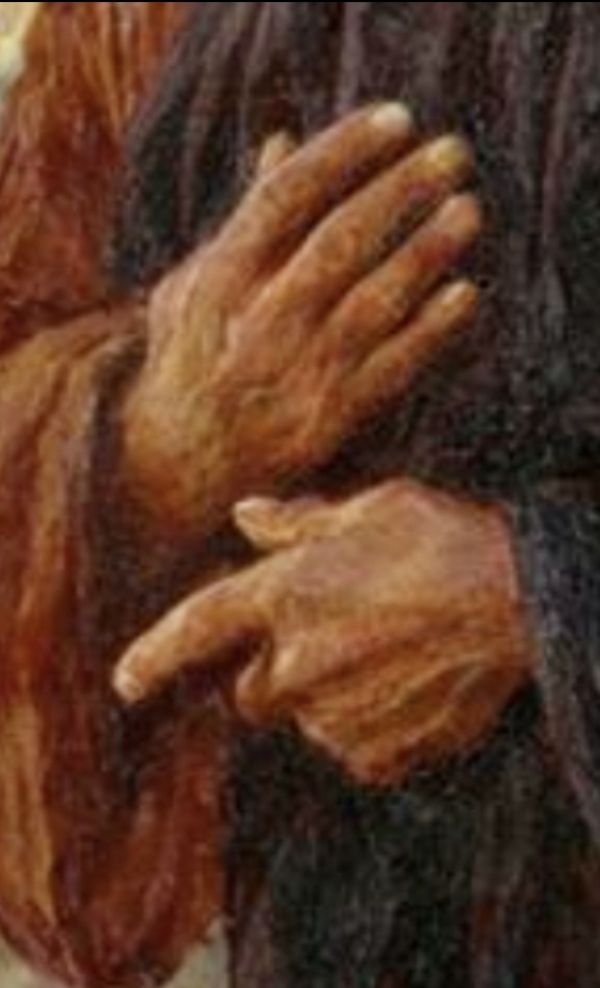In order not to weaken the personal Encounter
(Jn 20:2-8)
In Jn the beloved disciple at the foot of the Cross together with the Mother is the figure of each one, and of the new community that is born around Jesus.
Rises the Church; not on the basis of a planned succession, but by full and spontaneous adhesion.
In Asia Minor the Lord’s friends, Hellenists less bound to custom, intended to oppose the uncertain and compromissory attitude of the Judaizers.
Most of the faithful of the Johannine churches thought of abandoning the synagogue and the First Testament, which delayed them.
Alternatively, they wished to embrace exclusively the New, through personal Faith in the living Christ, without uncertainty.
The Fourth Gospel attempts to rebalance extremist positions.
"Son" and Mother - that is, the people of the ancient Covenant [in Hebrew «Israel» is of the female gender] - must remain united (Jn 19:26-27).
In short, Faith and works of law go hand in hand.
Faith is a progressive relationship that ignites in a search full of tension and passion [«to run»].
It conveys progressive perceptions, which give access to a new world [«to enter»], where we ‘see’ things we do not know.
This had already been in part the dismayed reaction of Mary Magdalene, who in Jn rushes alone to the tomb - not accompanied by other "women" as the Synoptics narrate.
A dismay that, however, pushes to the Announcement: the sepulcher (the condition of the Sheol, a ravine of darkness) was no longer in the arrangement in which it had been left after the burial of Christ.
And in fact, that «rewound [carefully] apart» sheet says it will never need any shroud. Death no longer has power over Him.
Thus, although the young man is faster than the veteran and arrives first to spot the signs of truth and the new world, he gives way and primacy.
Like a prophet who grasps everything ahead of time, the sincere disciple and the genuine community wait for even the slowest to come to the same experience, to the identical acumen of things; to believe in the mysterious process that brings gain in the loss and life from the death.
The eye of the fell in love immediately perceives; he has an intimate and acute gaze that grasps and makes its own the Novelty of the Risen One.
Earlier than mere admirers, the empathetic and true brother catches Life amid signs of death.
As if by the relationship of Faith that animates us, in the attention of events, we were already introduced into a reality that communicates ‘new senses’. And the distinguish-and-hear of the heart.
A Listening that makes the eye sharp - projecting the Announcement.
In this way, a new People arises, which "sees inside", which feels the Infinite appearing in finiteness, and complete life that is revealed in the fragility of the (even obscure) event.
Perhaps not a few people are still surprised by the 'empty tomb': that is, a Risen Jesus only 'personal', lived in love, in the free normal, in the self-giving that overcomes death. But without any 'mausoleum'.
The Beloved Disciple - flowed from the Heart of the Pierced Jesus and who also brings Tradition to the top - in his sensitivity ‘intuits’ the living Lord well ahead of the one commemorated.
He is kidnapped from it, and in his experience he instantly ‘realizes’ the power of Life on any tie up.
Divine condition, enlightening, unfolded in history.
[St. John the Apostle and Evangelist, December 27]












